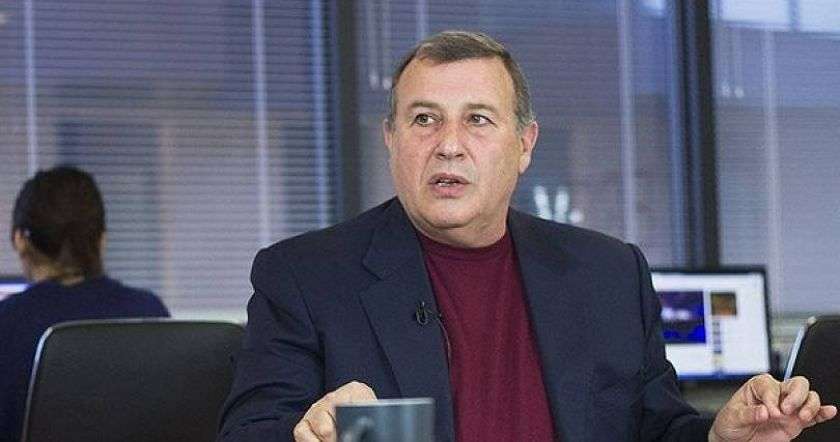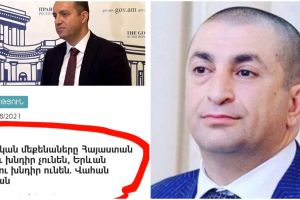
Վերջին 2-3 օրերի ընթացքում ակնհայտ դարձավ, որ ռուսական ԱԷՐՈՖԼՈՏ ավիաընկերությունը Երևանից թռիչքների համար առաջարկում է ԳԻՇԱՏԻՉ գներ:
ՖԲ օգտատերերը կցել էին ֆոտոներ՝ մի ուղղությամբ մինչև 357.000 ՀՀ դրամ արժողությամբ...
Տեղեկացնում եմ, որ դա տեղի է ունենում ՀՀ ավիացիոն իշխանությունների բացարձակ անգործության պատճառով:
Տեղեկացնեմ նաև, որ միջազգային կարգավորումները նախատեսում են այսպիսի իրավիճակ մեծ ընկերությունների կողմից ամբողջ շուկան կամ նրա մի սեգմենտը մոնոպոլիզացնելուն ուղղված քայլերի դեպքում: Եվ առաջարկում են համապատասխան գործառույթներ` երկրի տնտեսական շահը և ուղևորների ազատ տեղաշաժի իրավունքը պահպանելու:
Ստորև ներկայացնում եմ ICAO doc. 9626-ի 4.3 գլխից մի հատված, որը կոչվում է «ԳԻՇԱՏԻՉ ԳՆԵՐ» (էջ 140):
Տարիֆների կարգավորմանն է նվիրված նաև մի ամբողջ փաստաթուղթ՝ ICAO doc. 9587.
Ավելացնեմ, որ գները ԳԻՇԱՏԻՉ լինում են ոչ միայն իրենց թանկությամբ, այլ նաև էժանությամբ: Վերջինս օտագործվում է մրցակիցներին շուկայից դուրս մղելու համար:
Բայց դրանից որևէ երկրի` օդային տեղափոխումների տարիֆների կարգավորման իրավունքները և սեփական շուկան կարգավորելու պարտականությունները չեն նվազում:
Այսպիսի դեպքերում ՀՀ ավիացիոն իշխանությունները (եթե նրանք գոյություն ունեն) իրավասու են դուրս ՎՌՆԴԵԼՈՒ գիշատչին և արգելելու այդ ընկերության մուտքն ինքնիշխան պետության տարածք, ինչպես դա արեց հարևան Վրաստանը:
Իրենց անելիքն ունեն նաև ՏՄՊՊՀ և Հանրային ծառայությունները կարգավորող հանձնաժողովը:
Բայց գլխավոր գործողն այստեղ պետք է լինի ՔԱԿ-ը:
Փաստաթղթի նշածս հատվածը` ստորև
~.~.~.~.~.~.~.~.~.~
Predatory pricing
The practice of predatory pricing had been regarded as a relatively unlikely or irrational event simply because it would be costly and not credible. Along with liberalization, however, more States have expressed their concern that a major airline with a dominant market position might reduce fares specifically to drive out smaller rivals, or to discourage future entry, expecting to recoup any losses incurred by subsequently raising its fares above competitive levels. A dominant airline might also engage in predatory pricing to develop its reputation as a tough competitor and to send a “signal” to current and prospective rivals that the potential for profitable entry is slight. In addition, an airline, which receives a subsidy directly or indirectly from the State, could reduce their fares down to levels otherwise impossible to offer.
National tariff policies and practices
Most States have national laws, regulations or policies for evaluating tariffs or deciding whether to approve or disapprove tariffs filed by air carriers. If a State chooses unilaterally not to exercise its right to regulate tariffs, that right would in effect pass to the bilateral or multilateral partners, leaving regulation in their hands. However, partners would have as their primary concern the interests of their airlines and users. It is therefore important for a State to be able to intervene, whenever necessary, to protect its interests under any bilateral and multilateral agreements.
Similar to the terms used in the bilateral or multilateral agreements, the terms used in the national laws, regulations or policies are generally vague and subjective in nature. For example, the term predatory tariff may be applied by a party alleging injury from a tariff such party believes is intended to drive it out from a market, yet predation is particularly difficult to define with any degree of certainty, and there is no definitive approach to distinguishing between anti- and normal competitive pricing actions. In order to avoid such ambiguity and administrative difficulties in implementation, some practical schemes have been developed. Examples are:
• limitation of price leadership, i.e. the ability to initiate new fares or changes in existing ones in a market. States sometimes commit themselves bilaterally or unilaterally to limit price leadership to air carriers exercising Third and Fourth Freedom traffic rights, although the extent of price leadership or pricing flexibility they wish to permit varies. Price leadership by other air carriers is allowed on a case-by-case basis or on the condition of reciprocal treatment for their air carrier(s). In contrast, States generally approve matching tariffs, i.e. fares at the same level and with virtually similar conditions to those already approved for use in a market, for all air carriers including ones exercising Fifth, “Sixth” and “Seventh” Freedom rights;qq










